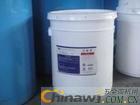Aluminum spacers are commonly used in insulating glass and other applications, but their effectiveness heavily depends on the technical conditions during installation. If these conditions aren't properly managed, it can lead to a variety of issues, making it difficult to achieve the desired performance and results.
One common problem occurs when the sealant cures too quickly. This usually happens due to high ambient temperatures or elevated temperatures of the sealant itself. These conditions increase the reactivity of the sealant, causing it to cure faster than expected. As a result, the working time is reduced, and if too much of component B is used, it can further accelerate the reaction. On the flip side, if the temperature is too low, the sealant may not cure properly, especially if there's an insufficient amount of component B. This leads to slow curing, which can delay the packaging and handling of the insulating glass.
To address these issues, different strategies should be applied depending on the situation. In cases where the sealant cures too fast, you can slightly increase the amount of component B (but never exceed 30%) to control the reaction speed. For slower curing due to low temperatures, manually applying the sealant with precise measurements of component B is recommended. When using automated systems, the glue machine settings should be adjusted to ensure the correct proportion of component B is dispensed. Proper calibration and attention to environmental conditions are essential for optimal performance.
If you're facing challenges with your aluminum spacers or sealant application, don't hesitate to reach out for expert advice. Hebei Xingda Insulating Glass Aluminum Strip Factory offers professional support and guidance. You can contact them anytime via their 24-hour consultation hotline at 0316-3267198 or speak directly with the business manager.
 (Word count: 506)
(Word count: 506)Decorative Veneered Plywood,Plywood Cabinet Materials,Plywood Furniture,Plywood Cabinet Veneered Materials
RILICO , https://www.rilico.com